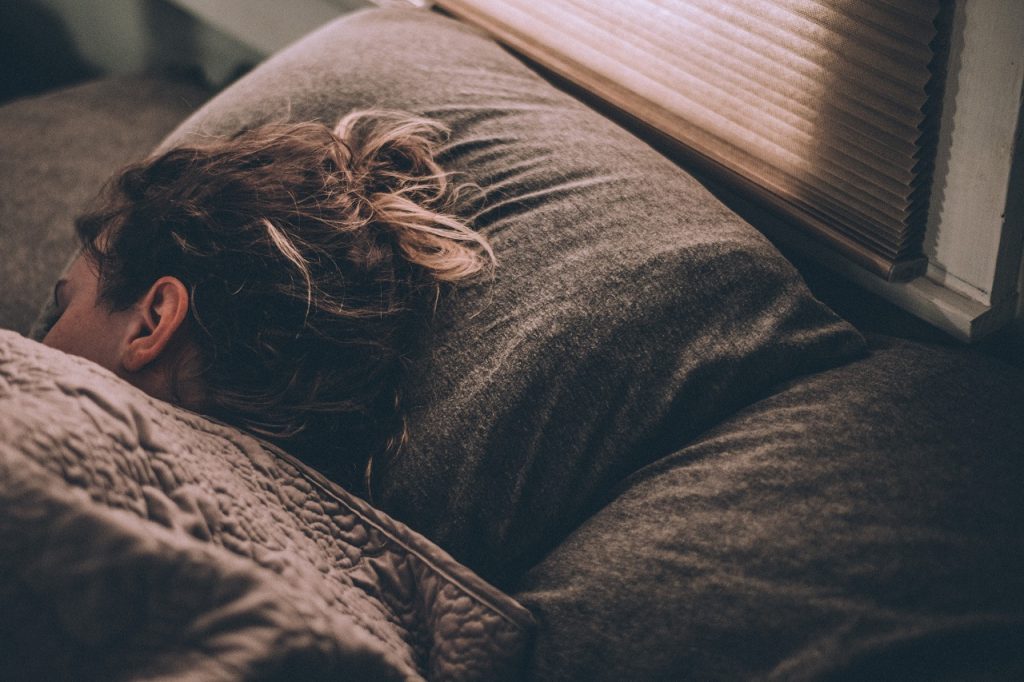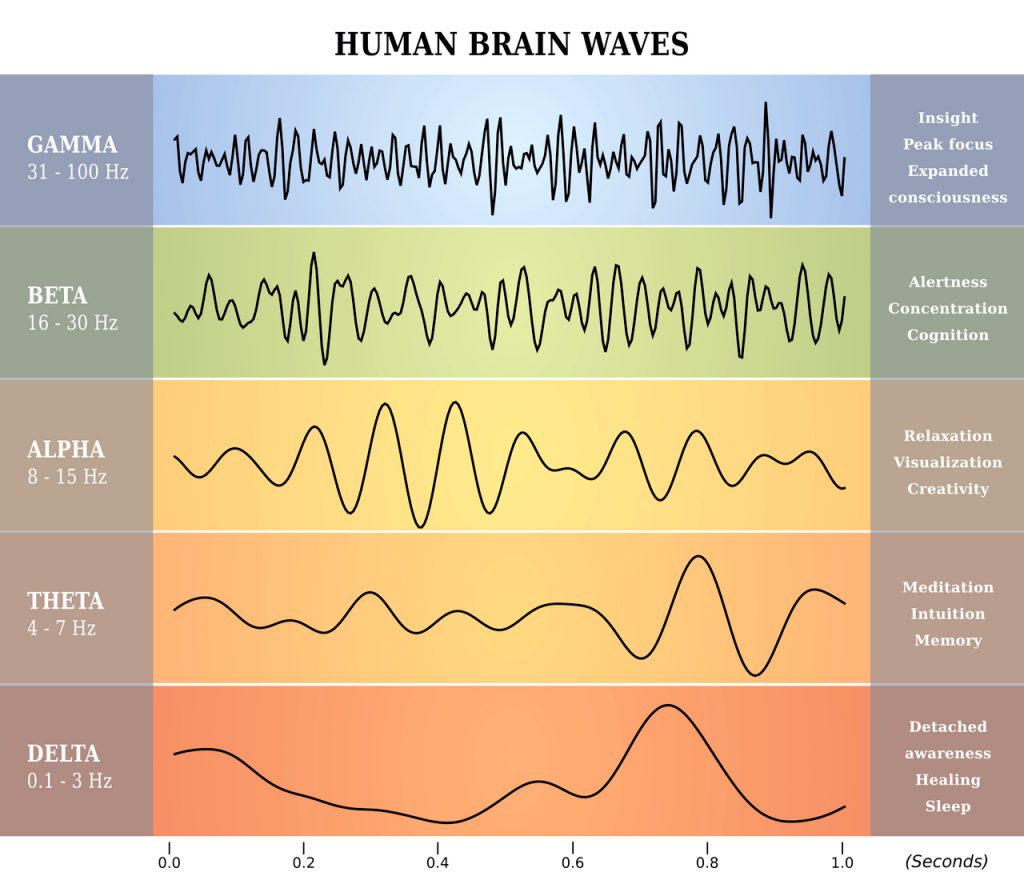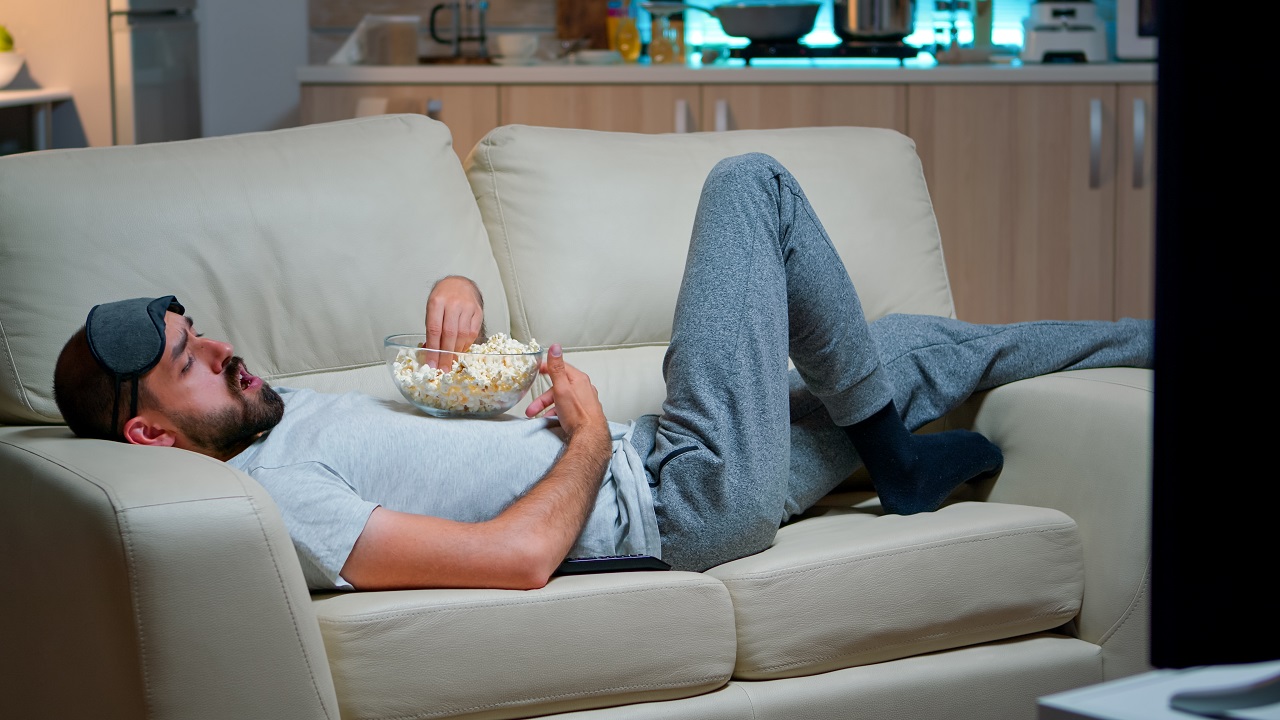
Sleep! You might have already read so many articles about this especially when you’ve not been getting quality sleep. Before we go deeper into how you can sleep better, let us first understand how we define sleep! As per the world’s sleep research, William Dement (Author of promise of sleep) defines sleep as the ‘Moment when the brain starts producing theta waves’.
Too technical! What exactly are theta waves? I don’t want to get too technical, so I will talk about medical jargon in the most simplest way possible.
The Brain Produces ‘Waves’ All The Time!
While you are awake (concentrating), your brain produces beta waves. When you are daydreaming, relaxing or lying around, your brain produces alpha waves. While your body is in the transition from relaxing to sleeping, that’s when your brain starts producing theta waves. When your body is in deep sleep, your body produces delta waves. 
During this period, your body starts producing growth hormones. I always tell this to my patients. Your body undergoes repairs when you enter deep sleep which is very crucial for overall well being. When I was learning more about sleep, the one question that often came to mind was, “How and when do we get dreams?”
After theta waves, there is one interesting thing which happens. It is called as REM Sleep or Rapid Eye Movement Sleep. This is when your eyes are moving with closed eyelids. You might be dreaming but you will not remember your dreams completely the next day. According to me, these are just basic things about sleep which everyone should be aware of (and with good reason).
Do you ever get a feeling of waking up tired after sleeping for almost 9 hours? When I ask this question to my patients, they say, “I am tired all the time!” This is called as Sleep Deprivation.
How Do You Know That You Are Sleep Deprived?
I read a lot! One of the books that I read on sleep is the Promise of Sleep. The book spoke about a very cool way of figuring out if we are sleep deprived or not. Check out the steps below:
- Go to bed with a spoon in your hand
- Your hand should be in a position where the spoon is over the floor and not over the bed
- Note the time when you plan to sleep
- As soon as you fall asleep, your hand muscles will relax. Once this happens, the spoon will fall on the floor and the noise will wake you up.
- Note the time when you wake up. That’s your own sleep latency.
There are many other sleep tests which are done as well to figure sleep deprivation out.
Now that we understand what happens when we sleep,
Follow These Tips to Sleep Better
As always, we go back to our basics: Sleep Hygiene
- Restrict Tea/Coffee/Green Tea and other caffeinated drinks. Caffeine circulates in the system for at least 7.5 hours. Taking caffeinated drinks close to bedtime can mess your sleep schedule.
- Make sure you create a sunset kind of environment post sunset with yellow dim lights so your body realizes that it’s the time for you to relax, rest and sleep. Same thing goes for the gadgets! Blue light from your devices block the sleep hormone production. If you have long screen hours, try using blue blocking glasses post sunset.
- Make sure that your room temperature is around 19-20. Usually, our body temperature tends to fall when we sleep. This will help you in maintaining an ideal body temperature when you wake up.
- Try to avoid exercising, watching exciting/horror movies which will keep your mind active for a long period of time.
Apart from the basics,
Try the Sleep Restriction State Method
- If you think you sleep 4 hours per night, then sleep for 4 hours only
- Go to bed at 1 AM and set your alarm clock for 6AM. You’re not allowed to go to bed earlier than 1AM, or wake up later than 6AM.
- You will be tired the following day. Extremely tired! That’s a good thing. You will be wondering, what is good in being tired but this will drive you to sleep earlier the next day
- The next day, you add ½ hour to the sleep time. You go to bed at 12:30AM instead of 1 AM and wake up at 6AM.
- Keep increasing your sleep window by ½ hour per day till you feel the sleep debt is paid off.
Why are we doing this? It’s because during this time of the sleep window, you won’t be allowed to use stimulants to keep yourself up. No coffee or any kind of caffeinated beverages. We are doing this so that your body starts building up the fatigue, drowsiness and eventually you will end up sleeping. This will help in recovering your sleep debt.
Sometimes, stiff neck muscles will decrease the blood supply to the brain, which results into fragmented sleep. Getting a physio evaluation for the same will also help in improving sleep quality.
We hope these tips help you sleep better! Do type your thoughts and queries in the comments below!
To read more on sleep, check out Healthy Reads. To get these tips directly from your GOQii Coach, subscribe for personalised health coaching here.
#BeTheForce
 There is more science supporting the fact that getting a good night’s rest is best for your health. A new study published in the journal Food Product Design, by Author Colin Chapman, MSc, of Uppsala University says that people who were deprived of one night’s sleep purchased more calories and grams of food in a mock supermarket the following day. Sleep deprivation leads to increased blood levels of ghrelin, a hormone that increases hunger. However, there was no correlation between individual ghrelin levels and food purchasing, suggesting that other mechanisms such as impulsive decision making may be more responsible for increased purchasing.
There is more science supporting the fact that getting a good night’s rest is best for your health. A new study published in the journal Food Product Design, by Author Colin Chapman, MSc, of Uppsala University says that people who were deprived of one night’s sleep purchased more calories and grams of food in a mock supermarket the following day. Sleep deprivation leads to increased blood levels of ghrelin, a hormone that increases hunger. However, there was no correlation between individual ghrelin levels and food purchasing, suggesting that other mechanisms such as impulsive decision making may be more responsible for increased purchasing.


